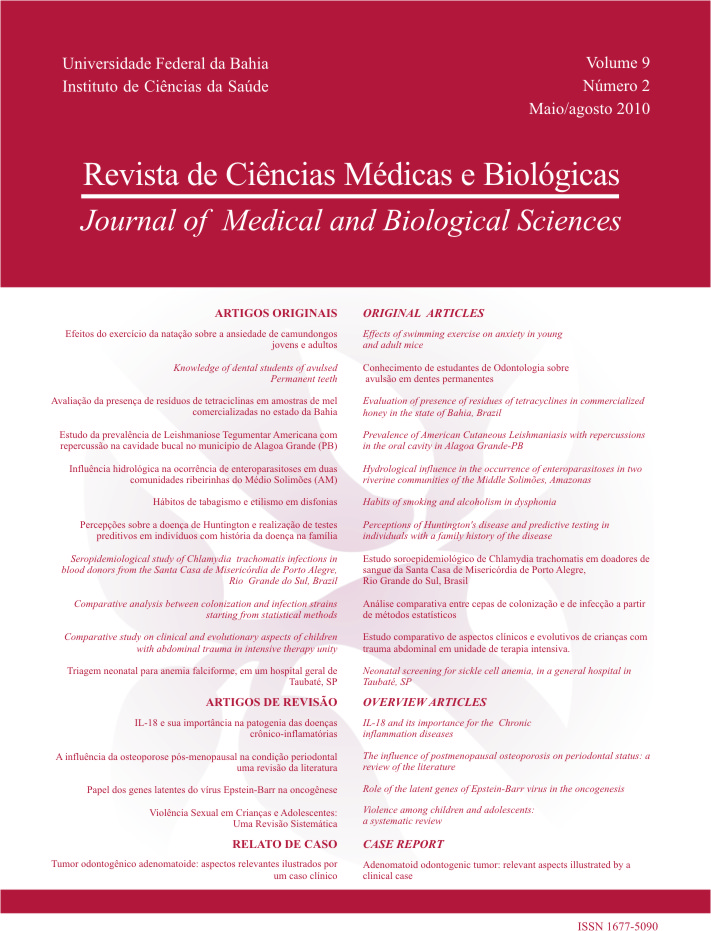Effects of swimming exercise on anxiety in young and adult mice
DOI:
https://doi.org/10.9771/cmbio.v9i2.4955Keywords:
swimming exercise – anxiolytic effect, behavioral tests – elevated plus maze – open field.Abstract
Studies have shown that chronic physical activity can alter anxiety in a variety of contexts. Adolescent (postnatal day 30) orearly adult mice (postnatal day 60) were exposed of 8 weeks of swimming exercise. The swimming exercise significantly increased
open arm exploration in plus maze in plus-maze test (F36, 3 = 7.565; p<0,001). Moreover, swimming training increase
time of ambulação (F36,3 = 33.739; p<0,001) and decreases total time spent immobilized (F36,3 = 13.039; p<0,001) in the open
field, having thus an anxiolytic effect. The open field showed that among sedentary young mice were less anxious than adults
and the young swimmers showed higher exploratory activity (F36,3 = 2.953; p<0,05) and grooming (F36,3 = 2.672; p<0,05).
Taken together, we conclude that swimming exercise appears to result in decreased anxiety.
Downloads
Download data is not yet available.
Downloads
How to Cite
Cruz, J. G. P. da, Magro, D. D. D., Fistarol, A. C., & Ferreira, F. (2011). Effects of swimming exercise on anxiety in young and adult mice. Journal of Medical and Biological Sciences, 9(2), 93–96. https://doi.org/10.9771/cmbio.v9i2.4955
Issue
Section
ORIGINAL ARTICLES
License
The Journal of Medical and Biological Sciences reserves all copyrights of published works, including translations, allowing, however, their subsequent reproduction as transcription, with proper citation of source, through the Creative Commons license. The periodical has free and free access.


